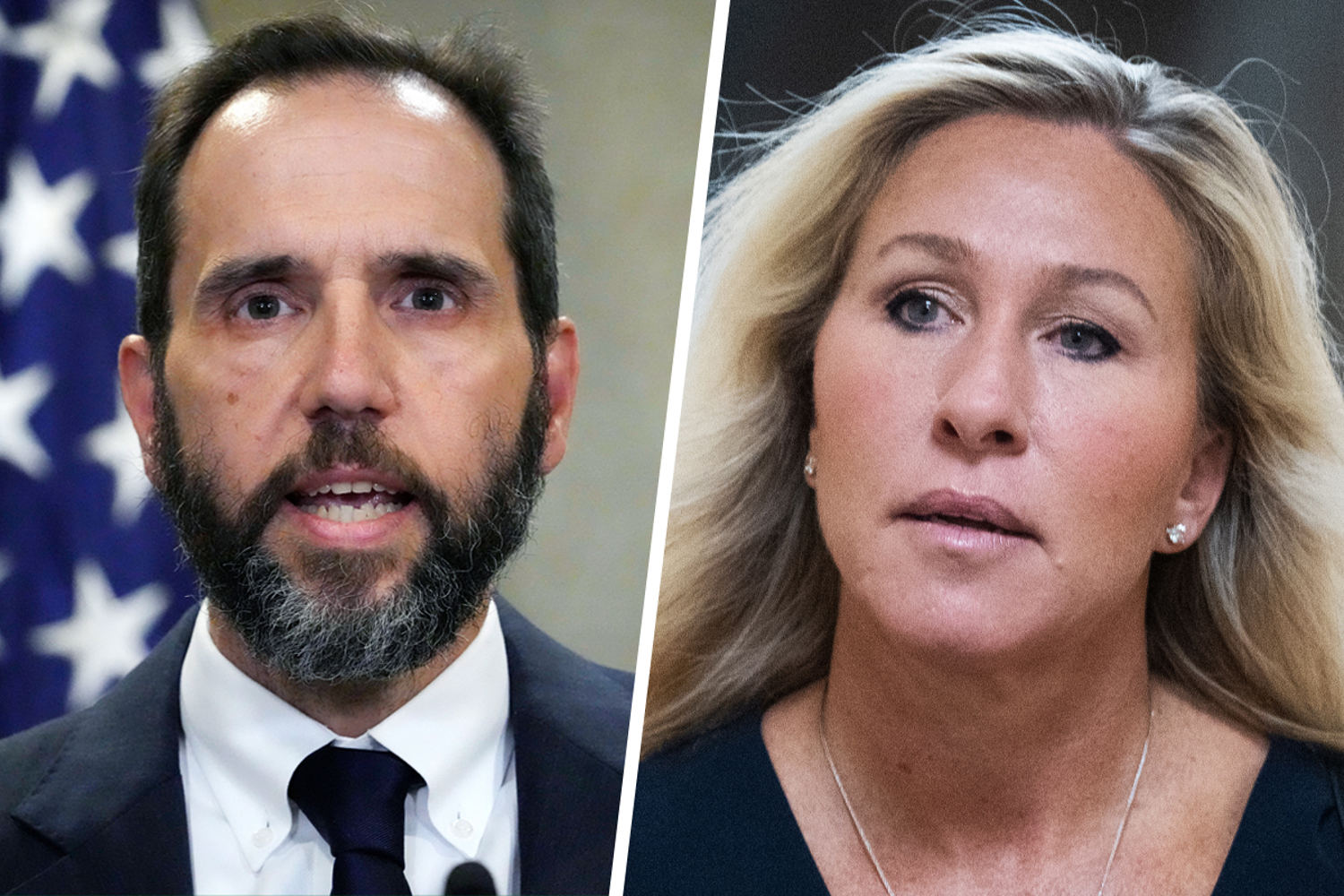[ad_1]

At 2 p.m. on Christmas Day, Rep. Brandon Williams, R-N.Y., received an urgent phone call from his local sheriff’s office in upstate New York: There was a shooting at his home, and deputies were en route.
Except, it wasn’t true. Williams was home with his family and everyone was safe.
“Of course I told them that everything was cool there,” he said, “and I greeted them outside just so that they would feel at ease and it wouldn’t escalate.”
Read more on this story at NBCNews.com and watch “NBC Nightly News with Lester Holt” tonight at 6:30 p.m. ET/5:30 p.m. CT.
Even before law enforcement arrived, Williams, who joined Congress in January 2023, had realized he was the victim of attempted “swatting,” in which a hoax call is made to police claiming a life-threatening situation is taking place. The deceptive act is meant to draw an armed SWAT team to a certain location, and it has, at times, turned deadly.
Like Williams, other political figures and members of the judiciary have been ensnared in swatting incidents in recent weeks — what law enforcement experts say is a product of a hostile political climate during an intense presidential election season. Among those named in reports are Rep. Marjorie Taylor Greene, R-Ga., who said she was also swatted this past Christmas; Boston Mayor Michelle Wu; Sen. Rick Scott, R-Fla.; Maine Secretary of State Shenna Bellows, who recently ruled former President Donald Trump is constitutionally ineligible to appear on the state’s primary ballot; special counsel Jack Smith, who is overseeing the prosecution of Trump in two federal cases; and Tanya Chutkan, the federal judge involved in Trump’s election interference case.
The spate of instances comes amid a backdrop of intimidation and harassment waged against public officials.
In remarks last week addressing violent crime across the U.S., Attorney General Merrick Garland said the Department of Justice is committed to investigating threats to FBI agents, federal judges, members of Congress, election workers and others. He pointed to the arrest of a Florida man on Jan. 3 in connection with threats to kill Rep. Eric Swalwell, D-Calif., and his children.
“At the same time that we are seeing an encouraging downward trend in violent crime, we are also witnessing a deeply disturbing spike in threats against those who serve the public,” Garland said.
The FBI added that it “takes these types of threats very seriously as it puts innocent people at risk.”
In May, the FBI launched a national online database so that police departments and law enforcement agencies can share information pertaining to swatting incidents. People making the calls often use technology to mask their true voice, caller information and location.
The FBI’s database is important for agencies to “connect the dots” on who is making the phone calls and if incidents are linked, said Frank Figliuzzi, a former FBI assistant director and a national security analyst for NBC News.
“You may think you’re anonymous, but the FBI and the local police are working together to get to you, and that SWAT team that you’re trying to get to show up at somebody else’s house may show up at yours,” Figliuzzi said.
In order to mitigate the number of incidents, he added that it’s imperative for people making the calls to be held criminally responsible.
In California, where swatting calls have involved the homes of Justin Bieber, Miley Cyrus and Tom Cruise, legislation was enacted in 2013 requiring those convicted of falsely reporting emergencies to bear the full cost of the police response. Last year, Ohio and Virginia also stiffened penalties for swatting.
But law enforcement experts say the financial burden and tying up of resources are a small price to pay when people’s lives are at risk. In 2017, a Kansas man was killed at his door by police responding to a fraudulent emergency call, and in 2021, a Tennessee man suffered a fatal heart attack when police swarmed his property.
Swatting “creates a dilemma for law enforcement,” Figliuzzi said. “They’re becoming very savvy of course to the level of increase in swatting events, but that doesn’t mean they can’t respond to a call for help or a man with a gun or a hostage situation, so they walk a fine line here. The good news is they’re so aware of this rise that they’re likely not responding with a SWAT team. They’re doing it very quietly.”
But Figliuzzi said these incidents may only escalate as more people are “enabled by the current political environment.”
In the case of Williams, he believes his outspoken support of Israel in the Gaza conflict has made him a target. Whoever called law enforcement claimed Williams had used a gun in his home and was also considering harming himself. The Cayuga County Sheriff’s Office happened to recognize the address they were being called to, which allowed them to contact Williams before they arrived, he said.
“It is a surprise when it happens to you,” Williams said. “It’s very personal. It’s very violating.”
No arrests have been made, and a motive for the fraudulent call remains under investigation, Cayuga County Sheriff Brian Schenck said Wednesday.
“With the cases that we’re seeing with many of our elected officials and high-profile officials, I think people that are doing this are trying to create chaos,” Schenck said. “It’s very unfortunate.”
[ad_2]
Source link
